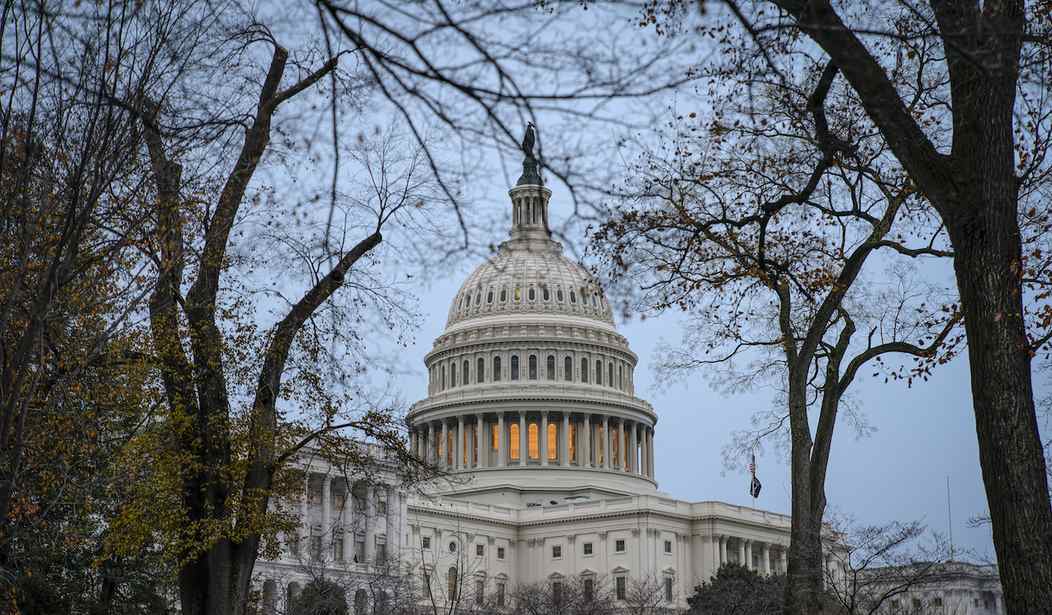There’s an appetite to deregulate suppressors and make the process to obtain them easier.
What explains this push, and why now? Why didn’t Republicans pull the trigger when they controlled all branches of government during the 114th Congress?
Passing legislation under a Democratic-controlled Congress, even with slim majorities, is unlikely. And don’t count on President Biden, a gun rights foe, to sign any bill into law.
While efforts may not succeed today, the future of suppressor deregulation isn’t out of sight yet.
The Industry Speaks
The push for suppressor deregulation isn’t new. It’s always been a top priority for the firearms industry and advocacy organizations.
SilencerCo, a suppressor manufacturer, sees an opportunity to educate lawmakers during the 116th Congress.
“The need for deregulated suppressors is ever-present, even now amidst [a] Democratic administration,” Shauna Young, public relations specialist at SilencerCo, told Town Hall over email.
Young stressed the “extreme importance” of proposed legislation to educate Americans about hearing protection for hunters and shooters—arguing it should be prioritized, despite today’s political climate.
“While the SHUSH and Hearing Protection Acts are unlikely to pass in federal legislation under current circumstances, they still raise awareness and conversation around why suppressors need to be deregulated,” she added.
“In fact, many states that have previously not allowed the possession of suppressors have proposed bills that would permit a variety of suppressor ownership possibilities. There are a lot of conversations happening around suppressors right now. The best thing we can do is to keep the public informed about the benefits of suppressors and why they should be easier to obtain.”
Recommended
Mark Oliva, director of public affairs at the National Shooting Sports Foundation (NSSF), said his organization’s goal is to help demystify suppressors.
“NSSF has been involved with trying to move regulation of suppressors from the 1934 National Firearms Act to the 1968 Gun Control Act for several years,” Oliva said. “Many priorities in Congress can move at a glacial pace and it can be frustrating, but the firearm industry is committed to ending the unnecessary regulation and bring this law into the 21st Century.”
He added, “It’s important to note that suppressors are often maligned because of overblown hysteria that is often spread, including by lawmakers who oppose them.”
Knox Williams, president and executive director of American Suppressor Association, understands it’ll take considerable time to change minds.
“Nothing in politics happens overnight, and legislation is no exception,” Williams admitted. “Even though [the Hearing Protection Act] HPA has no chance of becoming law during this Congress, it is imperative that we use the time we have now to lay the educational foundation for its eventual passage.”
Why Suppressor Legislation Failed to Pass Under Trump
From 2017 until 2019, suppressor advocates controlled the White House, U.S. Senate, and House of Representatives. Yet, there was little movement on legislation.
What explains this?
Young explained pro-gun lawmakers may even lack a basic understanding about suppressors.
“The failure of pro-suppressor legislation to pass under the previous GOP administration could be due to a lack of understanding surrounding suppressors,” she noted.
“NSSF invited media to shoot firearms with and without suppressors in 2018 to learn from themselves. A similar demonstration was held for lawmakers. Interestingly, those lawmakers opposed to the legislation didn’t participate in learning for themselves,” NSSF’s Oliva added. “The legislation was further doomed by outright promises by both Senators Chuck Schumer and Kirsten Gillibrand to filibuster the legislation.”
ASA’s Williams said efforts to deregulate suppressors were derailed following the tragic 2017 Las Vegas shooting in October— the worst mass shooting in U.S. history.
“A lot of people forget, but the Hearing Protection Act was very close to passage in 2017. It passed out of committee in September and was waiting on a floor vote in the House when the shooting in Las Vegas derailed all things pro-gun related,” Knox explained. “After that, we tried to get it back on track, but the political appetite for pro-gun legislation simply wasn’t there. It really is a shame that the Second Amendment walked away from that Congress with nothing to show for it.”
The Future of Suppressor Deregulation
While deregulation prospects appear grim, industry representatives aren’t deterred.
“Frustration in the silencer industry is high because ATF wait times can be anywhere from 9 -12 months. With no end in sight to this surge of suppressor sales, that wait time could greatly increase,” suggested Shauna Young. “While we at SilencerCo celebrate and inform the public of the fact that it is legal to own a silencer in the United States, we advocate for the day when their unnecessary regulations will be lifted.”
Mark Oliva argued with respect to suppressors, the U.S. should look to Europe for guidance in normalizing their use.
“Firearm suppressors in some countries is actually mandatory. Some European countries require firearms to be equipped with suppressors to reduce noise disruptions,” he added. “ They are available over the counter at hardware stores without background checks. These are countries with very strict gun control laws and they hold much different views of suppressors than gun control politicians in the United States.”
Conclusion
The future of suppressor deregulation remains unclear. It will take having another Republican president and GOP-controlled Congress to make headway. And as firearms ownership rates continue to rise, many Americans may give suppressors a second look.

























Join the conversation as a VIP Member